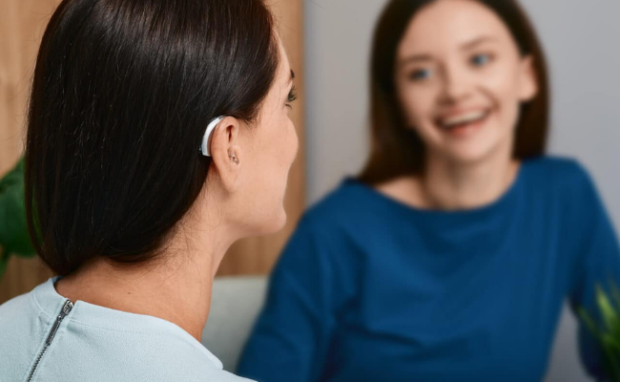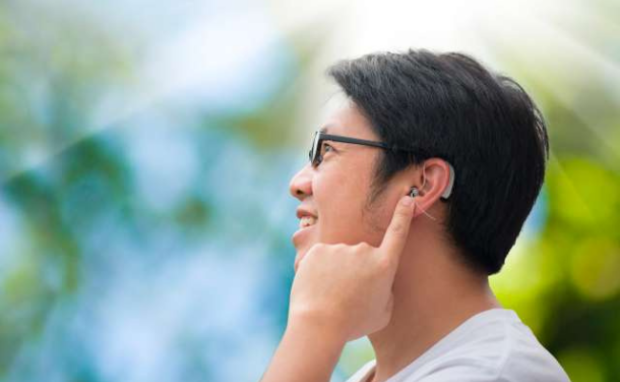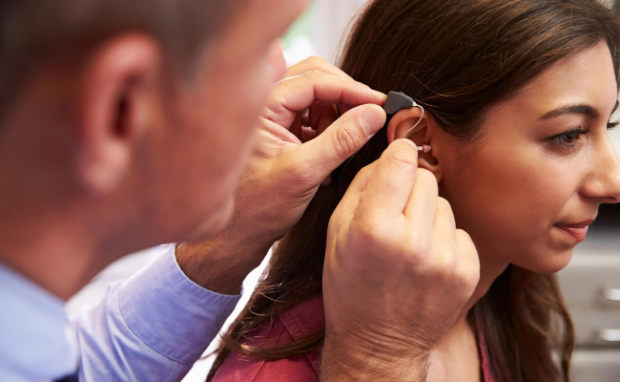More Young People Are Using Over-The-Counter Hearing Aids
The New York Times recently reported the increasing demand for over-the-counter hearing aids among young people. Quantifying that uptick is difficult, but the leading manufacturer, Phonak, said it had fitted 14% more hearing devices from 2017 to 2021. Specifically, the company had more customers aged 22 to 54.
Experts point to numerous factors when explaining why more young people need hearing devices. As the trend continues, you could be one of the people considering this tool for you or your children. However, you should know more about this device before purchasing it to avoid unintended consequences.
This article will discuss why younger generations are using OTC hearing aids. Also, I will explain their pros and cons and discuss why you should choose medical ones. You should read this article even if you’re not interested in using such devices. After all, you will likely interact with more people with hearing gadgets as this trend grows.
Why are more young people using hearing aids?

Photo Credit: mwent.net
The New York Times asked medical professionals about the rising demand for hearing devices. One of them was Dr. Catherine V. Palmer, the director of Audiology and Hearing Aids at the University of Pittsburgh Medical Center and Children’s Hospital.
“We have seen more young people over the past decade pursuing hearing protection.” Dr. Palmer said. “This seems to be much more mainstream, which is great,” she added.
Other experts point to other reasons why more people in their 20s use these devices. First, people are more willing to try technologies as our world becomes more digital.
In 1989, consumer research group MarkeTrak suggested people with hearing aids “were perceived to be less competent, less attractive, less youthful, and more disabled. In contrast, its 2022 report said modern users “rarely or never feel embarrassed or rejected.”
Second, more people aged 12 to 35 need hearing protection because of our modern noisy environments. According to the World Health Organization, more than a billion in that age range are at risk of hearing loss.
You may also like: Australian Researchers Test “Koala Facial Recognition”
Third, over-the-counter ear protection is significantly cheaper than medical ones. NYT says these devices cost $1,000 or more, especially if you lack good medical insurance.
Getting a diagnosis of hearing loss can also be difficult. The New York Times says patients must undergo hearing tests, physical exams, and imaging. That is why more people buy hearing aids from supermarkets and pharmacies.
Zina Jawadi, a medical student at the University of California, agrees affordability makes OTC devices the popular choice for young people. “This is one of the biggest things I’ve seen in a really long time in this space,” she said.
What are the problems with OTC hearing aids for young people?

Photo Credit: uclahealth.org
You can buy over-the-counter hearing protection from pharmacies like Walgreens and CVS. However, the American Academy of Pediatrics warns about the following risks:
- Over-amplification: Hearing aids make sounds louder to help people hear. However, most OTC options have poor optimization, making sounds too loud. As a result, you risk developing other problems like headaches.
- Specialized testing: Medical hearing devices require audiologists to ensure these devices fit a patient’s needs. In contrast, people can wear these devices immediately, making it harder to understand speech and other sounds.
- Durability and effectiveness: OTC hearing gadgets are more affordable and accessible to more customers. The downside is the lower cost often means lower quality. Your OTC pair may not help you hear well, or it may break easily.
You may also like: NASA Orders Rare Medical Delay During SpaceX Mission
How to choose the best OTC hearing aids

Photo Credit: scmp.com
Verify you have a hearing problem before purchasing these devices. The best way is to consult a medical professional. If you can’t, see if you have these symptoms of mild to moderate hearing loss:
- Sounds and speech seem muffled.
- You struggle to hear softer sounds.
- You crank the TV volume louder than most people.
- Hearing in groups or noisy environments is difficult.
- You often ask people to speak slowly or louder.
- You frequently ask others to repeat what they said.
You may also like: Why Use Bone Conduction Headphones
Then, choose hearing aids that fit your budget and have needed features. These include Bluetooth streaming, rechargeable batteries, feedback suppression, directional mics, and smartphone control.
They have three styles: behind the ear, in the ear, and the canal. Hearing aid user Ayla Wing told NYT her pair lets her silence noisy subway commutes. Also, the device helps her understand her students by toggling the “mumbly kids” setting.
Conclusion
Over-the-counter hearing aids are surprisingly becoming more popular nowadays. More young people acknowledge their hearing problems and confidently use devices to solve them.
This article does not provide medical advice. Consult a health professional if you suspect your ears have problems. Otherwise, OTC hearing aids may lead to more serious health problems.
Modern technology continues to improve healthcare in numerous ways. Follow Inquirer Tech to see the digital trends enhancing the quality of life worldwide.
Frequently asked questions about hearing aids
Do hearing aids fix my hearing?
Hearing aids do not restore your hearing capabilities. They function like eyeglasses, letting you hear speech better but not repairing your ears. Nevertheless, these gadgets are essential for people with mild or moderate hearing loss to live normally. They can be an important tool when socializing or working office jobs.
How long can you wear hearing aids?
You should wear your hearing aids as often as possible, but you do not need to wear them 24/7. Constant use will help you become more comfortable wearing and using the device. More importantly, it will help your brain perceive sounds more accurately with hearing devices. Like corrective lenses, you can take them off whenever.
What are the potential risks of hearing aids?
The Food and Drug Administration reminds the public about the potential risks of using hearing devices for long periods. The FDA said these devices might irritate your ear canal or the outer skin, leave parts inside, or burn it due to an overheated battery. If you suspect your hearing aid is malfunctioning, the FDA says you should contact them immediately.